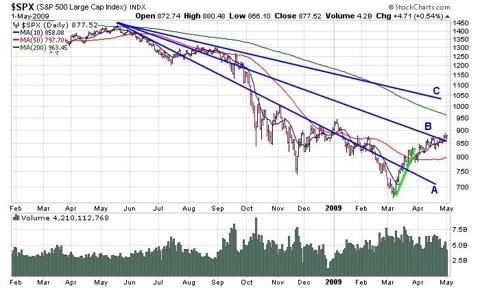子夜讀書心筆
寫日記的另一層妙用,就是一天辛苦下來,夜深人靜,借境調心,景與心會。有了這種時時靜悟的簡靜心態, 才有了對生活的敬重。History does not necessarily repeat itself, but it certainly rhymes. By looking to the past, we can infer lessons that will be valuable in the future.
The current recession and associated bear market have often been compared to the Great Depression. As often discussed in my weekly newsletter EPIC Insights, I never thought such a comparison was appropriate. Instead, I believe the more apt comparison is the 1973-1974 bear market. Accompanied by a deep recession, the '73 bear was also global in nature and had long-lasting effects. The bear market sheared 45% from its peaks and it would be 10 years until the Dow consistently traded above its 1973 level in nominal terms and 20 years until it surpassed the peak in real terms.
Following the conclusion of the bear market and its associated recession, we saw an inexperienced, dynamic democrat win the Presidency and both houses of Congress were run by liberal Democratic idealists. The political climate turned to government intervention, dealt with strife in the Middle East, and saw a decline in both the average American's living standard and the prominence of this country.
When the Dow bottomed in December 1974 after having fallen 45%, it was 20% higher in less than two months. Within 18 months the Dow was nearly 74% higher as it reclaimed 1,000 for the first time since 1973 and would never retest its bear market low. From there the Dow moved in a massive trading range that routinely saw 25-30% rallies and declines. Ultimately, it would be the end of 1982, eight years after the market bottomed and over six years after its quick, snap-back rally, before the Dow consistently traded above 1,000 and would embark on a new, sustained bull market.
As stated earlier, history does not repeat itself, but it often rhymes. President Obama is determined to cast himself as the second coming of FDR and has a compliant Congress that will allow him to do so. The Fed is pushing so hard on the monetary stimulus that it is hard to imagine how an inflationary spiral can be prevented. Also, tensions in the Middle East continue to escalate as Iran strives for nuclear weapons and pirates attack ships.
Looking at all these parallels, I believe a return to the 1970s is upon us. The remaining open question is whether the current recession is ending and the recent lows represent a bottom in the bear market. If both were to occur, we should expect prices to move higher over the short term, but remain in a broad trading range for years to come.
One of the technical patterns I have repeatedly used during the entire bear market is the fan principle. The fan involves drawing three different trend lines. When the final trend has been broken, the trend of the market has officially reversed and a new bull market will have begun.
Using the S&P 500 as a proxy for the entire market, the fan shows we have just witnessed a short-term trend reversal. From the panic phase in October to the low in March, the S&P 500 traded below its steepest trend line (line A). Now we see the index moving above the second line (line B) as they rest above their most recent peak. Now we should expect the 200-day MA (963) to offer the next price target. Ultimately, line C would need to fall for the primary trend to turn bullish. Depending on timing, such a move would take the S&P toward 1,025. Such a rally would be 60% off the March low and would approach the percentage gain that occurred in 1973 from the end of that bear market.
[click to enlarge]
Pulling all the pieces together, I am confident in two things. The first is the March lows represent the bottom of this bear market and prices will move higher from here. The second is that after the initial rally, we will remain in a trading range for many years. I do not believe massive fiscal and monetary stimulus can magically fix our economy or that we can print our way to prosperity. By taking the current path, we have kicked our problems down the road. Eventually the imbalances must be addressed. Until that occurs, a new bull market will not emerge and active investors will profit from the wild swings we face.





